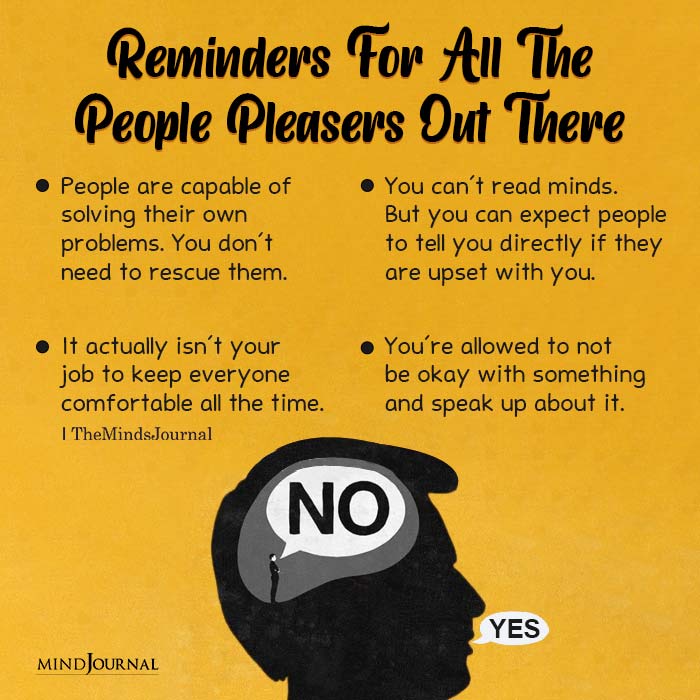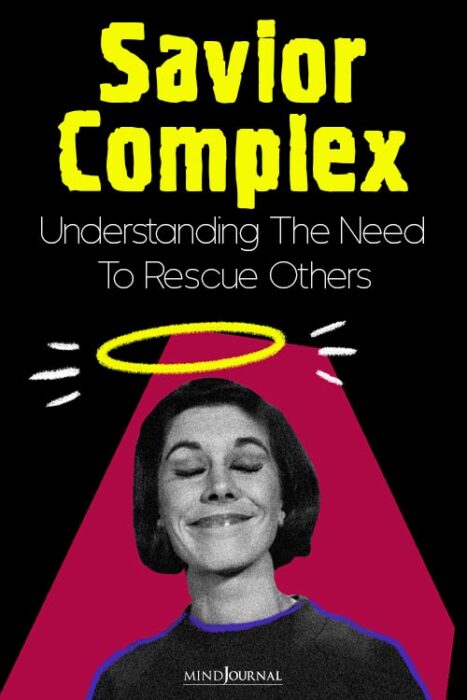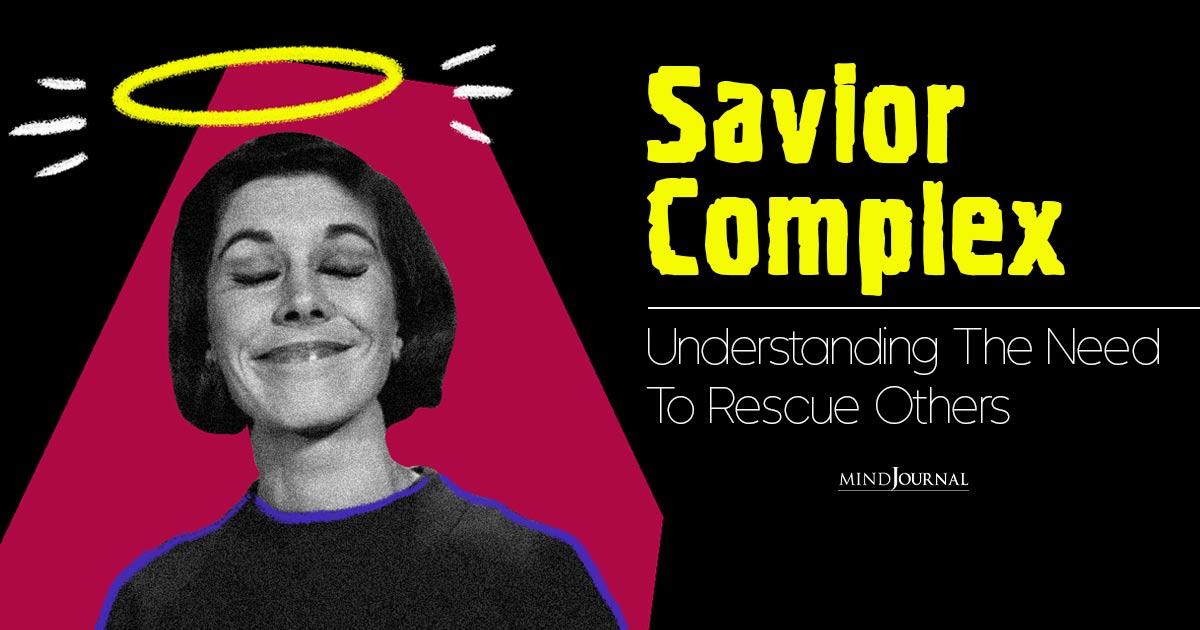Do you often feel the need to rescue or fix others? Are you the friend who is always offering advice or trying to “solve” problems for your loved ones? If so, you might be experiencing what psychologists call the savior complex. Let’s explore savior complex psychology and how to deal with it.
What is the savior complex?
Also known as the Christ complex or messiah complex, it refers to a psychological pattern characterized by a compulsive need to rescue or save others, often to the point of sacrificing their own needs and desires.
They may try to “fix” or rescue others even when the other person doesn’t want to be saved. People with savior behavior psychology often feel a strong sense of responsibility for other people’s well-being.
They may feel guilty or anxious if they don’t intervene in some way. It’s a complex that can occur in different types of relationships, from romantic partnerships to friendships to family dynamics.
Related: 5 Reasons You End Up Playing The Rescuer In Relationships Every Time
Understanding savior complex psychology
The messiah complex can manifest in a variety of ways, from always offering unsolicited advice to taking on excessive responsibility for someone else’s problems.
People with a savior complex may also find themselves attracted to relationships where they can play the role of the savior, rescuing their partner from their troubles. They often have a strong need to feel needed and important, and they may believe that they’re the only ones who can help others.
While it’s normal to want to help others, people with savior complexes often go to extremes. They may become obsessed with saving others, and they may neglect their own needs in the process. They may also become controlling and manipulative, trying to force others to accept their help.

Savior behavior psychology states that such complexes can be very damaging, both to the person with the complex and to the people they’re trying to save.
If you think you may have a Christ complex, it’s important to seek professional help. A therapist can help you understand your motivations and develop healthier ways of interacting with others.
Symptoms of the savior complex
The messiah complex can manifest in several ways, and some common symptoms include:
1. Over-responsibility
As per savior complex psychology, people with this condition often feel responsible for the well-being of others, even when it’s not their place to do so.
2. Rescuing behavior
They may have a compulsive need to rescue others, even when it’s not necessary or wanted.
3. Guilt and anxiety
People with a savior complex may feel guilty or anxious if they don’t intervene in some way, even if it’s not their responsibility.
4. Sacrificing personal needs
They may prioritize the needs of others over their own, often to the point of sacrificing their own well-being.
Some other symptoms of savior behavior psychology may include –
- A strong need to save or rescue others
- A tendency to become obsessed with saving others
- Controlling and manipulative behavior
- Anger or frustration when others don’t accept their help
- A belief that they’re the only ones who can help others
- Low self-esteem or poor sense of self-worth
- A history of childhood trauma
Causes of the savior complex
To better understand savior complex psychology, we need to delve into the reasons why someone develops this condition. It can have several underlying causes, including:
1. Childhood experiences
People who experience childhood trauma often develop a messiah complex as a way of coping with their pain. They may have grown up in an environment where they were constantly responsible for taking care of others, such as a parent with a mental illness or addiction.
They may feel like they need to save others in order to make up for the things that happened to them.
Related: Dysfunctional Family Roles: The 5 Child Roles In Dysfunctional Families
2. Low self-esteem
People with low self-esteem often feel like they’re not valuable, worthwhile or good enough on their own, unless they’re helping others. So they seek validation and self-worth through helping others.
They may believe that they’re only worthy of love and attention if they’re constantly giving to others.
3. Need for control
People with a savior complex may feel that they need to be in control of their environment and the people around them, and so they constantly intervene to maintain that control.
Savior behavior psychology reveals that they may believe that they’re the only ones who can help others, and they may become frustrated, manipulative or angry if others don’t accept their help.
4. Feelings of superiority
There are also ego-driven reasons behind savior tendencies. Some people subconsciously believe they are wiser or more capable than the person they are trying to help.
They may think “If only they would listen to my advice, their problems would be solved!”
Dangers of “rescuing” others
When good intentions spiral into unhealthy behaviors, the messiah complex can damage both the rescuer and the “rescued”. While the savior complex psychology may seem like a noble trait, it can have several negative consequences, including:
1. Codependency
By taking charge of someone else’s life, the rescuer prevents the other person from learning how to cope or problem solve on their own. Their ‘rescuee’ becomes dependent on them for emotional security and purpose.
Hence, people with a savior or Christ complex may become enmeshed in codependent relationships, where they feel responsible for their partner’s happiness and well-being
2. Unmet needs
Unless the savior addresses their own sense of lack and purposelessness, rescuing others will only provide temporary fulfillment. Their underlying emotional needs will continue to go unmet.
3. Boundaries are violated
Those with savior complexes often cross other people’s emotional boundaries. They may impose unwelcome advice or try to “fix” problems the other person does not consider a priority.
4. Relationships become one-sided
The “rescued” person often feels resentful or used, while the savior’s good deeds go unappreciated. Their relationship becomes unbalanced and strained over time.
5. Overstepping your role
There are some problems beyond your control as a friend or family member. When you try to take charge beyond your role, you may cause unintended harm.
Some other negative consequences of the messiah complex may include –
6. Burnout
Constantly putting the needs of others before your own can lead to burnout and exhaustion.
7. Resentment
If you’re always putting others first, you may start to feel resentful towards them for not appreciating your efforts.
8. Enabling behavior
Constantly rescuing others can enable them to continue their self-destructive behavior, rather than encouraging them to take responsibility for their own lives.
How savior complex relationships are like

The savior or Christ complex can also manifest in relationships, where one partner feels the need to rescue or save the other.
This dynamic in savior complex relationships can be particularly problematic in romantic relationships, where the savior may feel a sense of responsibility for their partner’s happiness and well-being, even at the expense of their own needs and desires.
In savior complex relationships, the savior may be attracted to partners who are struggling with addiction, mental health issues, or other challenges, as they feel that they can “fix” or “save” them.
Related: Why The Savior Empaths Are Desired By Narcissists
This can lead to a cycle of codependency, where both partners become enmeshed in each other’s problems and feel unable to function independently. To overcome the savior complex in relationships, it’s important to set boundaries and recognize that you can’t control or fix your partner’s problems.
It’s also important to prioritize your own well-being and practice empathy and active listening, rather than trying to rescue or fix your partner in savior complex relationships.
The Christ complex can be a challenging dynamic to navigate, but by recognizing its underlying causes and symptoms, and taking steps to overcome it, it is possible to break free from this pattern of behavior and build healthier, more fulfilling relationships.
How to deal with savior complex
Dealing with a savior complex can be a challenging and complex process, but there are several steps you can take to overcome it. Here are some tips for dealing with a savior complex:
1. Practice self-awareness
As per savior complex psychology, the first step in dealing with the Christ complex is to become aware of your own patterns of behavior. Start by reflecting on your actions and motivations, and try to identify when you’re acting out of a need to rescue or save others.
2. Practice self-care
It’s important to prioritize your own needs and take care of yourself before trying to help others. This can include setting aside time for activities that bring you joy, getting enough sleep, and eating a healthy diet.
3. Set boundaries
It’s important to set boundaries and recognize that you can’t control or fix other people’s problems. This may mean saying no to requests for help, or setting limits on how much time and energy you’re willing to devote to helping others.
4. Practice empathy
Instead of trying to rescue others, practice empathy and listen to their experiences without judgment. This can help you develop a deeper understanding of their needs and motivations, and may ultimately be more helpful than trying to fix their problems.
5. Seek therapy
If you’re struggling to overcome your savior complex, consider seeking the help of a mental health professional. A therapist can help you –
- Understand your motivations
- Work through the underlying causes
- Develop healthier patterns of behavior
- Find positive ways of interacting with others
- Learn new coping strategies
Treatment for a savior complex typically involves therapy, medication, and self-help groups.
Dealing with the Christ complex requires a willingness to examine your own patterns of behavior and make changes to prioritize your own well-being.
Takeaway
The savior complex psychology can be a challenging pattern of behavior to recognize and overcome, but it’s important to do so for your own well-being and the well-being of those around you.
By prioritizing self-care, setting boundaries, and practicing empathy, you can break free from the savior complex and lead a healthier and more fulfilling life. Remember, helping others is important, but it’s equally important to take care of yourself first.
Related: How To Make Your Partner Feel More Supported
Frequently Asked Questions (FAQs):
Is a savior complex toxic?
Yes, a savior complex can be toxic as it can lead to a patronizing and controlling attitude towards others.
What is the reason for Saviour complex?
A savior complex can stem from deep-seated psychological needs such as a desire for validation, control, or a sense of purpose.
What is the difference between a hero complex and a savior complex?
A hero complex is a desire to be seen as heroic, while a savior complex involves a desire to save others.









Leave a Reply
You must be logged in to post a comment.